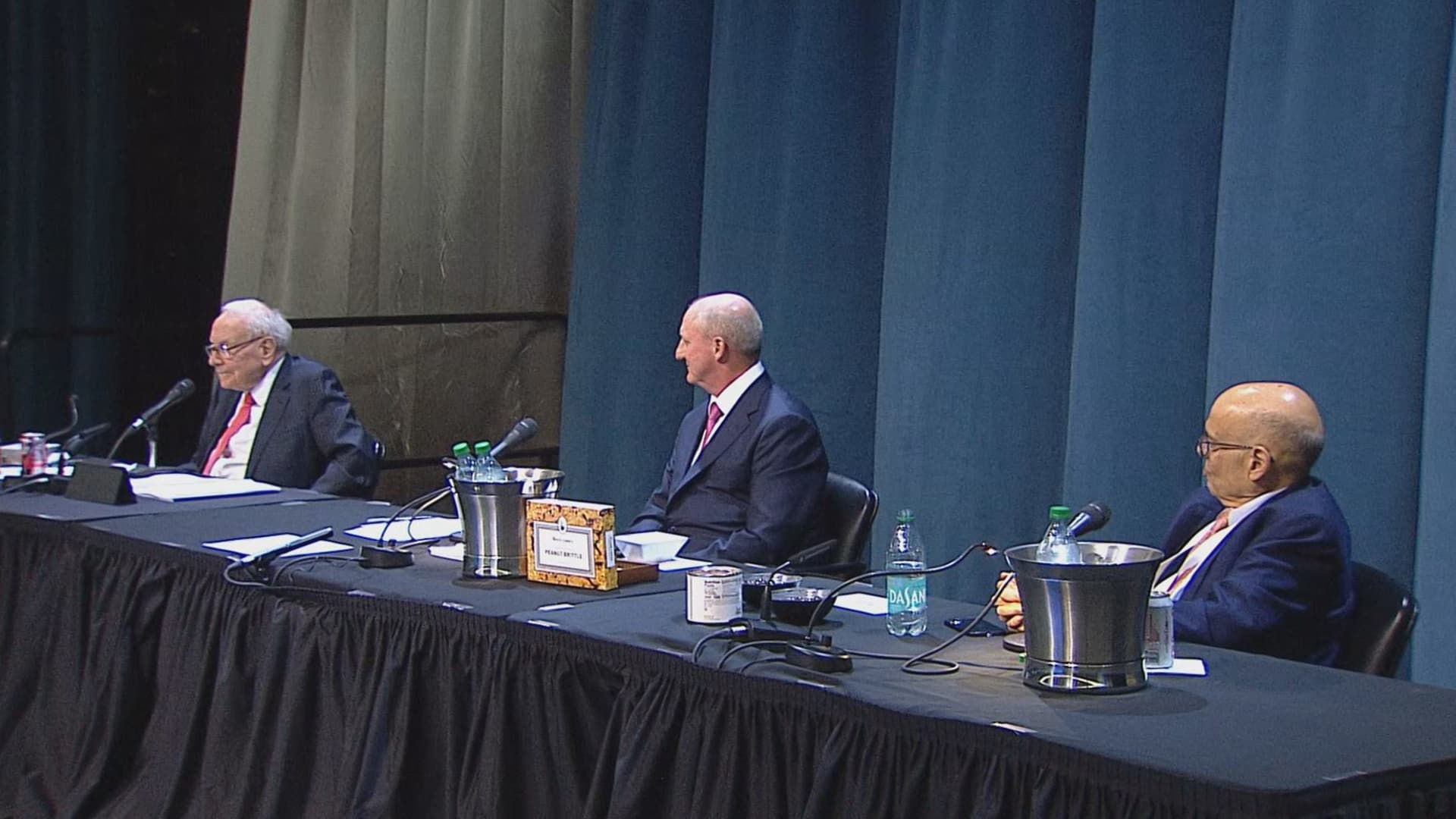It’s confirmed Warren Buffett won’t take the stage at Berkshire Hathaway ‘s annual meeting next year, with the Oracle of Omaha set to step down as CEO at the end of 2025. The investment sage, who is turning 95 years old in August, is handing over the reins after a legendary six-decade run at the conglomerate. Its annual meetings, known as “Woodstock for Capitalists,” is a chance for Buffett to share his views on markets, investing and life in general. This year, he made headlines by opining on global trade policy, the market’s recent volatility and much more. For Buffett admirers reminiscing at next year’s bittersweet gathering, here are some highlights from the 2025 meeting that might have gone overlooked. Real estate is harder than stocks On the topic of real estate, Buffett admitted he’s not a huge fan, especially when compared to equities. He believes that the stock market offers more opportunities and greater ease of execution, unlike real estate, which involves lengthy negotiations, many complexities and is notoriously difficult to buy and sell. “In respect to real estate, it’s so much harder than stocks in terms of negotiation of deals, time spent, the involvement of multiple parties in the ownership, usually,” Buffett said. “When you walk down to the New York Stock Exchange you can do billions of dollars worth of business totally anonymous and you can do it in five minutes, and the trades are complete when they’re complete.” Buffett revealed that the late Charlie Munger, his longtime business partner, enjoyed real estate transactions, and did a fair number of them in the last five years of his life. Finding Japanese investments in a handbook Buffett first unveiled investments in five Japanese trading companies on his 90th birthday in August 2020. He has since increased those holdings in Mitsui, Mitsubishi, Sumitomo, Itochu and Marubeni to about 10%, saying Berkshire intends to hold on to them for 50 years or more. One little-known fact he revealed at the annual meeting was that he discovered the trading houses, known as “sogo shosha,” in a handbook describing thousands of companies in Japan. “I was just going through a little handbook that probably had 2,000 or 3,000 Japanese companies in it,” Buffett said. “One problem I have is that I can’t read that handbook anymore. The print’s too small. And there were these five trading companies. They have a special name for them in Japan, but they were selling at ridiculously low prices.” Made most money on 8 ideas over 50 years In investing, Buffett believes the greatest success comes from only a handful of home runs. In fact, he said, quoting Munger, Berkshire made most of its money on about eight or nine ideas over 50 years. “If you get real opportunities every five or six years…, you have to be patient,” Buffett said. “We talked about it every day and we read every report and we did everything else, but if you think you can get an idea a day from listening to your friendly broker or doing a lot of reading of the financial information published … forget it, because every now and then you get extraordinary opportunities, and most of the time you don’t have much of an edge.” Buffett noted that the one problem with the investment business is that opportunities don’t come along in an orderly fashion. Insurance float is ‘absolutely free money’ Buffett also touted Berkshire’s unmatched amount of float that its insurance empire generates . Float refers to the money an insurance company holds temporarily between collecting premiums from policyholders and paying out claims. “There’s no property casualty company that has our float,” Buffett said. “That is money that (as long as we’re writing it and underwriting profit), is absolutely free money. And we would expect that over a 50-year, hundred-year period, that we would be able to say the same thing.” Buffett cautioned that there will be years when Berkshire has a bad underwriting record, which would eat into the float earnings. However, in the last 20 years, he said the firm has only suffered one annual underwriting loss. “It’s like running a bank, where people leave their money with you and you pay them minus 2.2% and you don’t have any check clearing or anything else to do, and it’s included in that total. But we run our business actually with a different mindset than any other PC company I think probably in the world,” he said. Reading balance sheets Buffett, with a history of identifying opportunities by reading company reports and filings, noted that balance sheets — highlighting assets and liabilities — offer more insight into companies’ health than income statements. “That’s one thing we’ve really never talked about here, but I spend more time looking at balance sheets than I do income statements. And Wall Street really doesn’t pay much attention to balance sheets,” he said. “But I like to look at balance sheets over an eight- or ten-year period before I even look at the income account, ’cause there are certain things it’s harder to hide or play games with on the balance sheet than you can with the income statement.”





